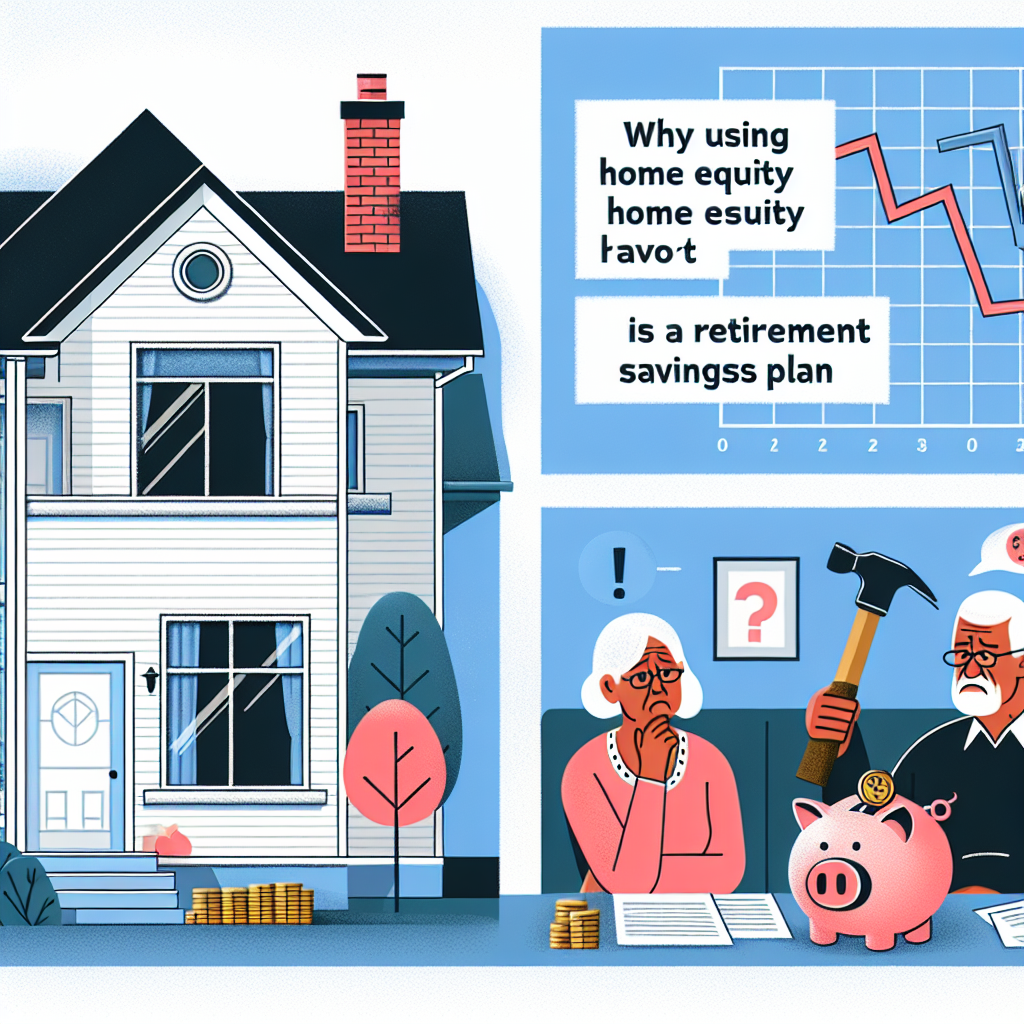Why Relying on Home Equity as Retirement Savings Might Not Be the Best Idea
When planning for retirement, many people think their home equity will provide a solid financial foundation. After all, your home is often your biggest asset, and the value usually appreciates over time. However, relying on home equity as your primary retirement savings can come with some significant downsides. Here are three reasons why using home equity might not be your best retirement strategy.
1. Unpredictable Market Value
One of the primary issues with depending on home equity is that the real estate market can be unpredictable. While homes typically increase in value over the long term, this isn’t always the case. Housing markets can experience ups and downs due to various factors, such as economic changes, interest rate shifts, and local market conditions.
For instance, during a housing market crash, your home’s value may decline significantly, leaving you with less equity than you anticipated. If your plan is to sell your home or take out a loan against its equity for retirement income, a dip in the market could jeopardize your plans, making it challenging to access the funds you expected.
2. Costs and Complications of Selling or Refinancing
Another factor to consider is the costs and complications associated with selling your home or refinancing your mortgage. When you want to access your home equity, you may think about selling the house or refinancing your mortgage. However, both options come with expenses.
If you decide to sell your home, you’ll face real estate agent fees, closing costs, and potentially needed repairs or renovations to increase your home’s value. These costs can eat into the equity you expected to tap into for retirement.
Similarly, when refinancing, you may incur closing costs, and depending on market conditions, the interest rates may not be favorable. Both selling and refinancing can be time-consuming processes that require careful planning and decision-making.
3. The Risk of Outliving Your Home
The most significant concern about relying solely on home equity for retirement is the risk of outliving your home. Once you sell your house or deplete your equity, you may find yourself without a physical asset for further income. This scenario can be risky, especially if you haven’t set aside other savings or invested for your retirement.
With life expectancy increasing, people are often living twenty, thirty, or even forty years into retirement. Relying just on home equity could lead to financial strain if unforeseen expenses arise, such as medical bills or home repairs. It’s essential to have a diverse portfolio of investments, savings accounts, and perhaps other forms of income to ensure stability throughout retirement.
Exploring Alternative Retirement Savings Options
Now that we’ve discussed the risks of using home equity as your primary source of retirement wealth, let’s look at some alternative approaches to building a solid financial future.
1. Traditional Retirement Accounts
Taking advantage of retirement accounts like 401(k)s or IRAs can be an excellent way to save. These accounts typically offer tax benefits and potential employer matches, allowing your money to grow over time. Make sure you are contributing enough to your retirement accounts to build a robust safety net.
2. Diverse Investment Options
Consider spreading your investments across various asset classes, such as stocks, bonds, mutual funds, or even real estate investment trusts (REITs). This diversity can help mitigate risks and provide better returns than relying on home equity alone.
To explore stocks and investment options, you can check out resources like Stock Pulsar, which offer insights into stock performance and trends.
3. Build a Cash Reserve
Having liquid savings is crucial as you prepare for retirement. A cash reserve can provide peace of mind for unexpected expenses and maintain your quality of life during retirement. Aim to have three to six months’ worth of living expenses set aside to navigate financial surprises.
Conclusion
While relying on home equity for retirement savings might seem appealing, it’s essential to consider the potential drawbacks. The unpredictable nature of the real estate market, the costs associated with accessing your equity, and the risks of outliving your home all highlight the importance of careful planning. Instead of putting all your eggs in one basket, focus on building a well-rounded financial strategy that includes diverse investments and savings. This approach will help secure your financial future and provide a more stable retirement experience.



